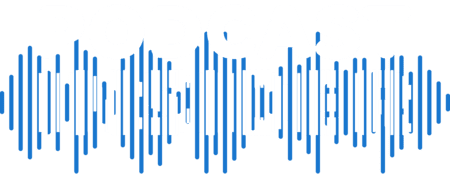Madness Amid H.H. Holmes and the 1893 World’s Fair
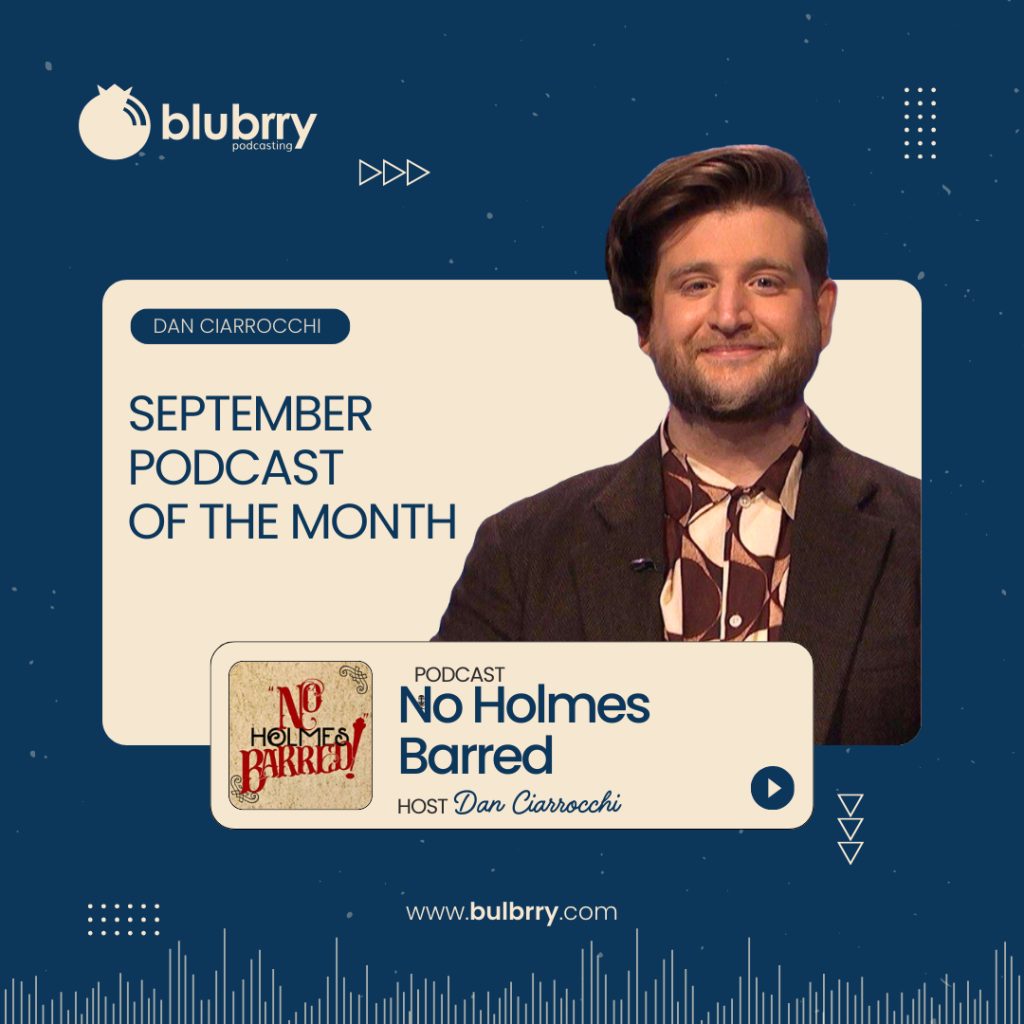 In the newly released, nine-episode podcast No Holmes Barred, Daniel Ciarrocchi casts listeners into the chilling world of H.H. Holmes, America’s first documented serial killer, who stalked the streets of Chicago during what was supposed to be one of the city’s most celebrated events – the 1893 World’s Fair. Holmes, whose real name was Herman Webster Mudgett, was a cunning and charismatic sociopath who constructed a labyrinthine mansion, later dubbed the “Murder Castle,” explicitly designed to ensnare and kill his victims. Behind its deceptively mundane facade, Holmes committed acts of unspeakable horror, murdering between 20 to 200 people, dismembering their bodies, and disposing of them in his hellish home.
In the newly released, nine-episode podcast No Holmes Barred, Daniel Ciarrocchi casts listeners into the chilling world of H.H. Holmes, America’s first documented serial killer, who stalked the streets of Chicago during what was supposed to be one of the city’s most celebrated events – the 1893 World’s Fair. Holmes, whose real name was Herman Webster Mudgett, was a cunning and charismatic sociopath who constructed a labyrinthine mansion, later dubbed the “Murder Castle,” explicitly designed to ensnare and kill his victims. Behind its deceptively mundane facade, Holmes committed acts of unspeakable horror, murdering between 20 to 200 people, dismembering their bodies, and disposing of them in his hellish home.
But Holmes’s gruesome spree was not the only dark tale unfolding in Chicago during the World’s Fair. Billed as the “White City,” this grand event was rife with greed, narcissism, and a disturbing undercurrent of racism. The fair’s planners – who were more concerned with outdoing one another than with the welfare of their workers among their many sins – created an environment riddled with human rights violations. Workers toiled under perilous conditions for meager wages, and the fairgrounds themselves hosted dehumanizing “human zoos” that displayed individuals from around the world as mere curiosities for Western amusement.
Our September Podcaster of the Month, Ciarrocchi notes that amid these grim realities, some light did manage to pierce through the shadows. The 1893 World’s Fair also gave birth to enduring innovations and cultural icons, such as the Ferris wheel and the coveted caramel popcorn treat, Cracker Jacks, which would become a staple of American snacking. Tight-knit communities came together and took a stand against the deplorable working conditions. Surprisingly, the bizarre spectacle that was the 1893 Chicago World’s Fair provided momentum for workers’ rights.
With a launch that correlated with Ciarrocchi’s appearance (and two-time winner) on Jeopardy in the spring of 2023, No Holmes Barred explores the dichotomy of these many worlds in a laugh-outloud, dark satire and unsettling examination of the sinister and spectacular elements that coexisted in the heart of 1893’s Windy City.
In the case of No Holmes Barred, it’s kind of like it’s nonfiction and yet kind of historical fiction and what is it? Yeah. How would you describe it?
That’s a good question because I still haven’t figured out the elevator pitch of how to describe it. I would say that it is an audio fiction story; an old-time radio play in that sort of style. It is a true crime story. It is a historical fiction story. It’s also a dark satire based on all the events that happened at the time, which were too strange for fiction. So, I had no interest in trying to shoehorn plot points because these real events were already so fascinating. How did this get from point A to point B? Because we know the ‘what’, we don’t know enough about the ‘how.’ That was also where the fun part came in for me. I kept asking myself, ‘What were these conversations like?’ and soon I had a script and now we’re here.
What was it about H.H. Holmes and the 1893 Chicago World Fair that piqued your interest? What was the trigger that made you think, ‘Oh my gosh, this is what I need to write about?’
It’s interesting because I don’t think it was any one thing. I don’t think there was an ‘a-ha’ moment for me. I think it was just a lot of things coming together at once.

My stepmother grew up in Chicago during the 40s and 50s, which of course was not during the 1893 World Fair. But I got to go there as a kid and got a feel for the city. And later in life, I think being curious and coming across true crime stories, led to reading about H.H. Holmes. At first glance, he’s a guy who built a house dedicated to murdering people, but it wasn’t just that. So I did delve into the subject, but weirdly enough, I became much more fascinated by the story that was surrounding all of the murders, not the murders themselves.
A lot of information out there on Holmes kind of paints him as a boogeyman. And don’t get me wrong, he 100% is. But I think he’s actually even scarier than that because he had very ‘human,’ and relatable motivations. I think it’s deeply unsettling but worth exploring when people find themselves relating to those sorts of things—like prosperity and power—even if they wouldn’t kill to achieve that. I also thought the backdrop of 1893 Chicago was even more fascinating. So that’s what I wanted to bring to the listeners; just a sense that there is something deeper going on with this story. This show does not lionize Holmes, but there’s definitely some depth to this story and these characters that I wanted to bring to light.
Many of us were aware of Holmes before, and I was aware of the Murder Castle correlation with the World Fair. But until researching your podcast, I had no idea how bizarre and absolutely absurd the spectacle of the World Fair was. You do a really good job of combining his story with the World Fair and how these things came together in madness! If there were a positive outcome of that world fair, other than Cracker Jacks, what occurred that furthered us as a society?
Well, you’re right about the Cracker Jacks, and thank you for not just glossing over that! You did have some debuts of some products that we still use, Wrigley’s Gum, also Pabst Blue Ribbon beer, which I think actually debuted considerably before the fair, but it’s where it got its actual blue ribbon. But as I was reading about this fair and just everything that went on behind it, I just couldn’t ignore the parallels—between this kind of ruthless industriousness of 1893, and a lot of corruption and societal issues we have today.
We just tend to think, ‘Hey, we’re so far removed from this ridiculous time,’ and it’s implied that we’ve progressed since then. But have we? So those are the kinds of things that I really lean into, as the story evolves. That being said, it’s still very much a true-crime historical-fiction satire, and it sticks to its roots.
Well, I guess there are no human zoos anymore or are there?
Thankfully there have been huge strides for workers rights in particular and Chicago was often in the middle of it. In 1890s America, there were little to no protections for workers, whatsoever. And Chicago—and just the Midwest, in general—was a really inspiring region during that time just because of how much tight-knit communities did stand up to people who were literally trying to exploit them. I think you have to look at events like Haymarket, and the podcast also touches on the Waukesha Spring Water Co. that literally tried to build a pipeline from a town in Wisconsin all the way to the fair in Chicago, and tried to by coming in the night. I won’t give too much away though, but I’ll say the town was ready.
You outline all the chaos and the weirdness of the World Fair, and it was about greed and racism and narcissism and corruption. But when it comes to Holmes, did you find out what his actual motivations were?
I want to preface that this is coming from me as a consumer, not as an expert in criminology or psychology. But from what I understand with serial killers, there are ‘process killers’ who just enjoy the act inherently, and ‘product killers,’ who do it for the end result. Holmes, I think, was not only both, but I think there was a deeper motivation for him that a lot of other serial killers hadn’t typically exhibited.
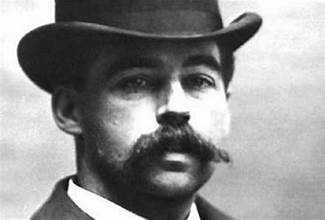
For starters, I think Holmes was motivated by the grift; there was just no end to what he would do to get ahead. There, for sure, was a motivation of the thrill for him. But there’s also this entirely separate component where he was this ruthless, power-crazy entrepreneur at the same time, and he was a savvy one if you consider pure crookedness to be savvy.
He was very persuasive and charismatic. He would find ways to sign off his debt to unsuspecting people who trusted him. He never seemed to embark on any relationship with anybody unless he thought he could exploit them in some way, shape, or form. He killed for money, he killed for power, he killed maybe because someone just got in his way. It was all of those things. But at the core, he was just a conman who simply had no limits to what he would do.
What was your process of finding the voice actors and honing in on the characters and what was the whole production process? I would like to know what kind of equipment you use. I mean, just the whole back end of it.
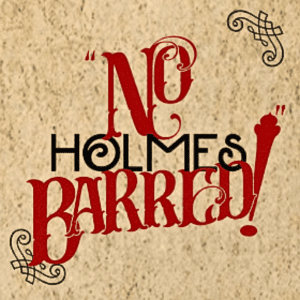 I live in a great city. I live in Baltimore, and there’s such a thriving arts community here, and to be honest, it is a community that I would love to get more acquainted with. I was lucky enough to have a network of people who had theater experience and also just were really good actors. Some people had less experience, but a lot of raw talent and distinctive voices. I lucked out in having so many people come to be a part of this.
I live in a great city. I live in Baltimore, and there’s such a thriving arts community here, and to be honest, it is a community that I would love to get more acquainted with. I was lucky enough to have a network of people who had theater experience and also just were really good actors. Some people had less experience, but a lot of raw talent and distinctive voices. I lucked out in having so many people come to be a part of this.
I was really happy that Sam Sessa came along; he has such a smooth radio voice and a lot of range that he put into Daniel Burnham as one of the lead characters. Another great actor named Matt Gal—who I did meet while I was in L.A. taping Jeopardy, funnily enough—was perfect for the role of Patrick Prendergast. So that was another added bonus of that experience for sure.
There are also not just voice actors, there are sound effects, there’s music too, and you have to think of the whole story as an entire soundscape when you’re producing it. So compound that again, with the fact that it’s 2024, there’s just so much capability these days for tracking and working on things from home. So I actually had a lot of submissions of vocal tracks from people who were in their own home setups, and that can be challenging to put together into one cohesive show. I would be extremely remiss if I did not mention the absolute sterling work of my engineer, Evan Kornblum, who succeeded in that and also tracked all my lines in particular. He tracked so many lines during this, and he mixed and sequenced everything.
We did have a lot of constraints with resources. But those constraints, I think, kind of force you to be creative as well. So I loved just pouring through the public domain and a lot of free-use sound effects and assets like that. At times, we found really fun challenges in seeing how to fit some really stupid elements into the podcast. I can’t wait to have that chance again.
Did you guys ever get together in the same room in record, or was it remote and then your engineer put things together?
It depended on feasibility and preference. A lot of people like to work alone, I think. For me, I have a background in music, and whenever I would be playing guitar and recording in a studio, I could do it myself, but I prefer having a producer there telling me, ‘Dude, that sucked. Do it again.’ And just having that extra push, really, that’s the kind of worker I am. I like being challenged. But to answer your question, yes we would have people in the same room at times, but all of the lines that we recorded were always one at a time, individually. Sometimes we’d have someone recording, but I’d be in the room maybe reading from a script, acting that scene with them. But overall, it depended on preference and circumstance.
We could get creative, too. If the character is supposed to be out of breath, I’d be like, go jump up and down for 30 seconds, or something. Or ‘here, bite into this sandwich and then say this next line with your mouth full,’ or something like that.
That sounds like a blast! No Holmes Barred is great – it’s kind of like an old-fashioned radio show that you would hear in the 40s 30s and 50s, but how long did each episode take, and how often did you publish each?

Truth be told, I backed myself into a little bit of a corner. To start off, I had already written the script and the show was in pre-production when I was filming my Jeopardy appearance, which would’ve been February 2023. I knew that the Jeopardy episode was going to air in April 2023. So in one of my interview segments with Ken Jennings, he asked me what I’d been working on and I got to talk about the podcast. And as soon as those words left my mouth, I was thinking, ‘Huh, I probably should give people something to listen to by April. What do you think?’ So, I flew by the seat of my pants, honestly, just to release that first episode. Thankfully, it was ready and became a fun sneak preview.
I went on to just release the episodes sporadically, whenever they were done. I wasn’t too caught up with consistent release dates, even though consistency is king with podcasts. At the time, I simply wanted the idea to be out there. I just wanted people to have something to listen to. I was also eager to show the world what kind of stories I like to tell and the way I like to tell ’em. So yeah, I definitely jumped the gun a bit, but now that I’ve got all the episodes out and ready, I can sell people on a finished product instead of just Chapter One.
On that note, when you were talking about being a writer you said something about your writing style. How would you classify that and what other sorts of creative ventures have you delved into?
I love subversion. I love satire. I love writing because it helps me process the world around me or far away from me. I know that sounds a little over-inflated, but really, what I like most about writing is that it helps me connect with people; It helps me express what I’m feeling in ways I can’t always articulate. But as the idea gets more and more fleshed out, I realize, ‘Hey, maybe I’m not the only one who feels this way. Maybe there are other people who might feel seen if I put this out there.’ I understand just how powerful that feeling can be as part of the audience. I mean, just speaking from my experience, just when somebody conveys to you that, ‘yeah, I get what you’re going through,’ and there’s comfort in that. I do like to pay that feeling forward as much as I can—if I can manage to at all.
As far as what else I’ve done, well, it is probably a little too early to talk about, but I can say I did sell a movie script recently to a small, independent studio and production will get going in early 2025. So I am excited about that.
As far as what a lot of what I’ve done publicly though, I am a recovering journalist. I actually wrote about fantasy football for SB Nation about 10 years ago. I actually won an award for ‘Newcomer of the Year’ from the Fantasy Sports Writers Association. That’s where I kind of got started when it comes to publishing. But as you can see, that is a far cry away from the kind of stuff I’m doing now.
And what is your next step now that you’ve gotten all nine episodes of No Holmes Barred published? What are you looking at? Is there something else in U.S. history that just goes beyond the absurd and spectacular that you’re going to follow up with this?
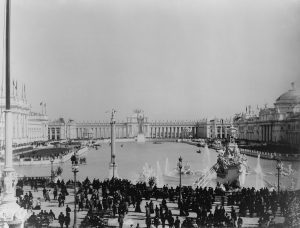
I’m always looking at absurd history, especially absurd American history. I’ve always wanted to do something about the early days of Major League baseball because it was a similar era as Holmes’s story, and I just remember hearing so many ridiculous stories.
As far as what’s next, I know there is a community out there for No Holmes Barred. There are true-crime fans, there are people who are interested in history and people who just need to turn their brains off and laugh sometimes at just the state of the world—not just the state of today, but how it’s kind of always been. There are also people who like all three of those things, so I want to build a space with No Holmes Barred, because it would be a space for those people to nerd-out together with me. I think that it is also a topic that people can take some solace in, apply some lessons from, and hopefully make life a little bit easier.
Social Media:
- Facebook: Page
- Instagram: @NoHolmesBarred
- YouTube: @NoHolmesBarred
Listen to the show:
- On its website or directly via RSS
- Apple Podcasts
- Spotify
- Rephonic
- Audacy
- YouTube: @NoHolmesBarred
Get In Touch
Questions, comments, interview requests, or sponsorship inquiries? Get in touch with Ciarrocchi at noholmesbarred@gmail.com.





